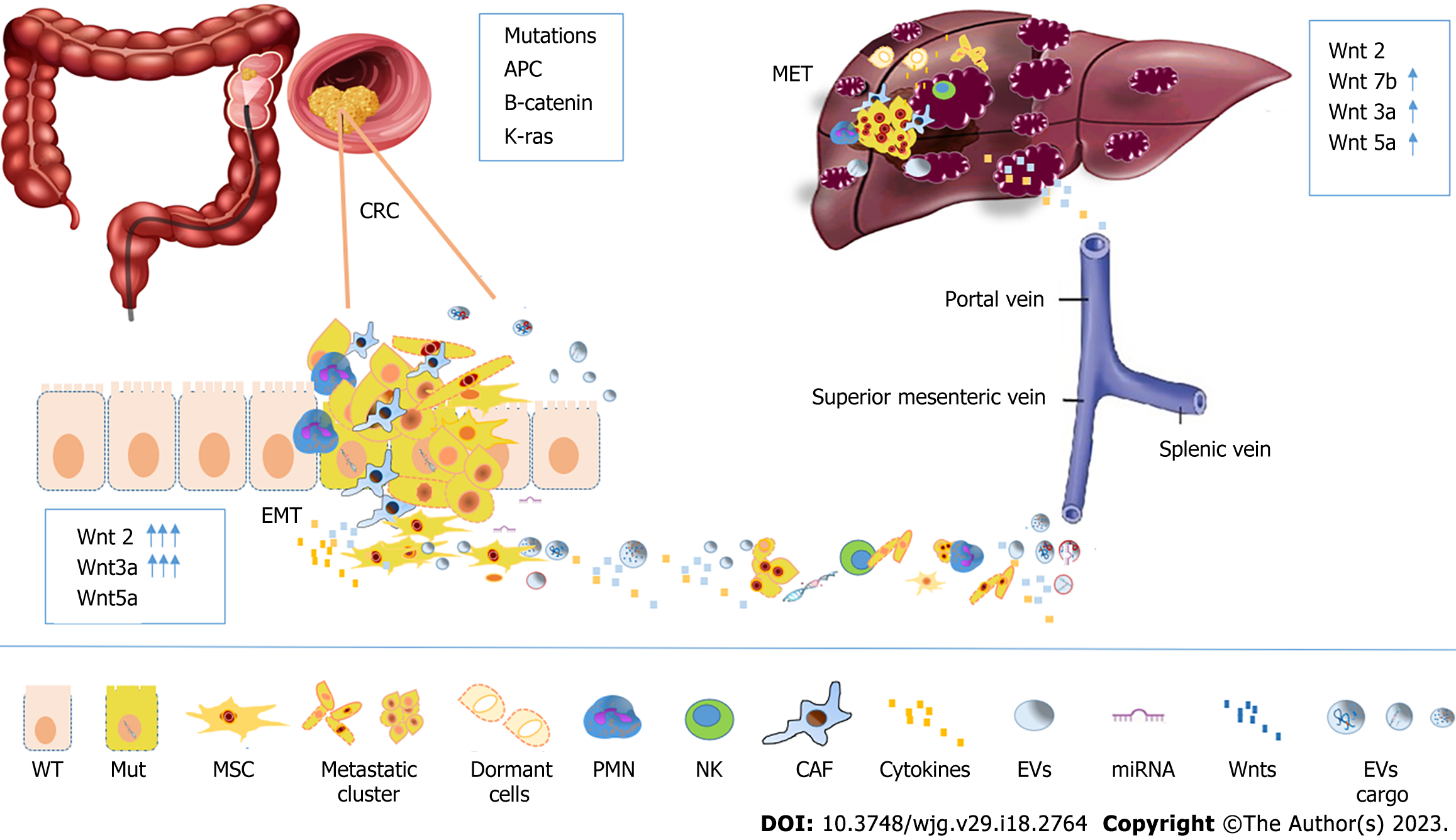Copyright
©The Author(s) 2023.
World J Gastroenterol. May 14, 2023; 29(18): 2764-2783
Published online May 14, 2023. doi: 10.3748/wjg.v29.i18.2764
Published online May 14, 2023. doi: 10.3748/wjg.v29.i18.2764
Figure 1 Metastatic liver microenvironment in colorectal cancer.
Genetic changes such as adenomatous polyposis coli, β-catenin mutations or K-RAS mutations can generate epithelial-mesenchymal transition/mesenchymal-epithelial transition; aberrant activation of Wingless/It (Wnt)2, Wnt7b, Wnt3a and Wnt5a ligands promotes local invasion of mesenchymal stem cell and cell migration from primary lesion to form distant colorectal liver metastases; tumor microenvironment, including extracellular matrix, blood vessels, extracellular vesicles, different types of cells, such as cancer and immune cells, proinflammatory cytokines, chemoattractants, and angiogenic factors, influences the metastatic cell colonization in tissue niches. EMT: Epithelial-mesenchymal transition; MET: Mesenchymal-epithelial transition; APC: Adenomatous polyposis coli; Wnt: Wingless/It; CRC: Colorectal cancer; MSC: Mesenchymal stem cell; CRLMs: Colorectal liver metastases; WT: Wild type; MUT: Mutant; PMNs: Polymorphonuclear neutrophils; CAF: Cancer-associated fibroblast; NK: Natural killer; EVs: Extracellular vesicles; miRNA: MicroRNA.
- Citation: Selvaggi F, Catalano T, Lattanzio R, Cotellese R, Aceto GM. Wingless/It/β-catenin signaling in liver metastasis from colorectal cancer: A focus on biological mechanisms and therapeutic opportunities. World J Gastroenterol 2023; 29(18): 2764-2783
- URL: https://www.wjgnet.com/1007-9327/full/v29/i18/2764.htm
- DOI: https://dx.doi.org/10.3748/wjg.v29.i18.2764









